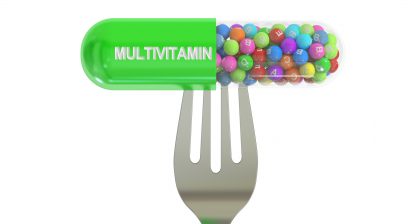U.S. health officials now recommend another vaccine dose for all Americans. Here’s what that means for you.
By Catherine Pearson | HuffPost via PHARMATIVE.com
For months, vaccine manufacturers and health officials have been debating whether booster shots will be necessary to continue to protect Americans against COVID-19, as well as when they might distribute them.
Now the answer is clearer: The Biden administration announced in mid-August that most Americans should get a third shot eight months after they received the second dose of a Pfizer or Moderna mRNA vaccine.
And on Wednesday, Johnson & Johnson reported that a booster shot of its vaccine generates a “rapid and robust” increase in antibodies, and that the company will submit its findings to health agencies.
Naturally, the recent announcements have led to a lot of questions about what this guidance means for fully vaccinated Americans and their loved ones. Here’s what you need to know about this latest news:
1. When will the next round of COVID-19 shots roll out and who gets them?
Many people with weakened immune systems are already eligible for a third dose of the mRNA vaccines, which the Food and Drug Administration authorized last week for “solid organ transplant recipients or those who are diagnosed with conditions that are considered to have an equivalent level of immunocompromise”.
Boosters for the rest of the population will be available starting this fall, and they’ll be staggered based on when people initially rolled up their sleeves.
“We are prepared to offer booster shots for all Americans beginning the week of September 20 and starting 8 months after an individual’s second dose,” health officials from several federal agencies explained in a joint statement last week.
That means that people who were vaccinated early, including health care workers, nursing home residents and other older adults, will be first in line for boosters.
After that, fully vaccinated individuals will be eligible to get their booster shots eight months after their second dose of the mRNA vaccines. (Can’t remember exactly when you got your second shot? The date is on your COVID-19 vaccine card.)
2. What happens if you got the Johnson & Johnson shot?
The Johnson & Johnson vaccine was not part of the Biden administration’s initial booster plan, although public health and medical experts from the U.S. Department of Health and Human Services said at the time that they anticipated “booster shots will likely be needed for people who received the Johnson & Johnson (J&J) vaccine.”
Now that Johnson & Johnson has released its booster data, it will submit it to the FDA, which is currently evaluating data from Pfizer and Moderna to make recommendations about boosting.
For now, experts tend to advise against getting a shot of the Moderna or Pfizer vaccine if you initially received the Johnson & Johnson shot. Some say there probably isn’t any harm in taking an extra dose, but individuals who got J&J should wait for more official guidance from their doctor or other public health officials before getting a booster.
3. Can you mix manufacturers?
Again, there are a few steps that need to be taken before most non-immunocompromised Americans can start getting their boosters. The FDA has to authorize it, then the Centers for Disease Control and Prevention will look over the evidence and make recommendations for all three vaccines. Only at that point will there be more specific, practical information available about how exactly boosters should be given (and what to avoid).
However, the CDC’s advice for immunocompromised people who are qualified to get a third dose right now is that they should not mix manufacturers. You should get a Pfizer booster shot if you initially received the Pfizer vaccine and a Moderna booster if you got Moderna. (The CDC has said there is “not enough data at this time to determine whether immunocompromised people who received the Johnson & Johnson’s Janssen COVID-19 vaccine also have an improved antibody response following an additional dose of the same vaccine.”)
But the CDC also states that “if the mRNA vaccine product given for the first two doses is not available or is unknown, either mRNA COVID-19 vaccine product may be administered.” For now, it’s reasonable to guess that the same advice will be true for the general public as well.
4. What’s the difference between a ‘booster’ and a ‘third dose’? Are they the same?
Although the terms are often used interchangeably, booster doses and third doses are not exactly the same. Boosters are given to people who have already had a full course of the vaccine and developed a good response; third (or additional) doses are given to people who already had a full course of the vaccine and did not develop a sufficient immune response, like immunocompromised individual.
It’s unclear right now what the specific dosage recommendations will be for the general public when the next round of shots roll out. That’s something the CDC and FDA will weigh in on as they look through the evidence.
5. Will additional shots reduce breakthrough infections?
Yes. The decision to make another shot available to Americans in the coming months is based on available data that makes it clear that protection against COVID-19 decreases over time. Throw in the delta variant, and “we are starting to see evidence of reduced protection against mild and moderate disease,” health officials said in their statement.
But although breakthrough cases have been increasing, they remain quite rare. The breakthrough rate among people who are fully vaccinated is under 1% in all states that are currently tracking that data. Also, the mRNA vaccines and the Johnson & Johnson shot continue to provide robust protection against the most serious outcomes like hospitalization and death, which is ultimately the primary goal of vaccination.
“The vaccine is still really protective against severe disease,” Adam Ratner, chief of the division of pediatric infectious diseases at Hassenfeld Children’s Hospital at NYU Langone Health, told HuffPost.
“Fully vaccinated folks, in general, are not the ones who are ending up in the hospital, ending up in the intensive care units,” he added. “The idea behind boosting is to make sure that we don’t get to that point.”
6. Why are these being recommended eight months later?
Recommending another shot eight months after the second shot of the mRNA vaccines is a “best guess based on the available data,” Ratner said. And Johnson & Johnson has indicated it also intends to offer boosters eight months — “or longer” — after the initial dose.
Researchers have been looking closely at antibody titers, which measure the levels of COVID-19 antibodies in the blood. “We conclude that a booster shot will be needed to maximize vaccine-induced protection and prolong its durability,” health officials said.
However, that doesn’t mean that your immunity suddenly falls off a cliff after, say, seven and a half months.








